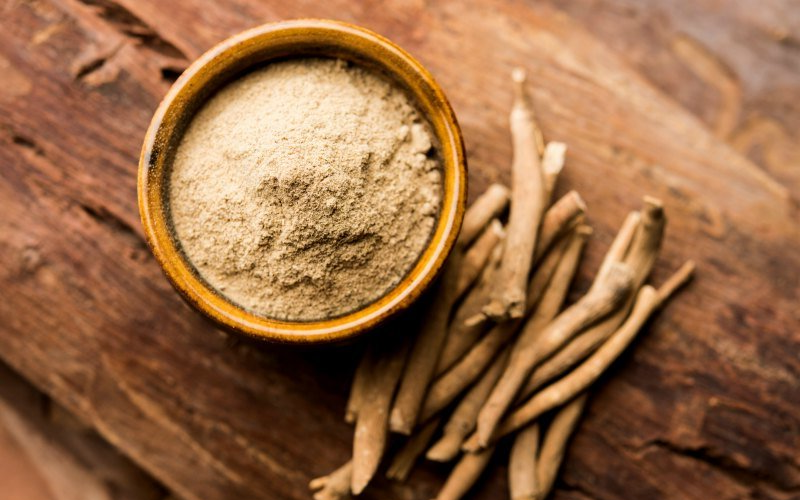Ashwagandha is a plant adopted by Ayurvedic healers, the traditional practice of health and wellness in India. The root of this herb is known to provide countless health uses, most important to this post being its capacity to minimize anxiety and stress.
An Intro to Ashwagandha
Ashwagandha is a plant that is native to India and parts of North Africa. For thousands of years this herb has been extremely crucial in Ayurveda medicine, the age-old medical system of India. You might also know ashwagandha called Withania somnifera or Indian ginseng. Though the plant’s seeds, leaves, and root have each been utilized in Ayurveda, it is specifically the root that has recently become well-known in modern Western societies.
The health and wellness benefits of the ashwagandha root are countless and wide-ranging. People take ashwagandha to lower blood sugar levels, lower cholesterol, improve memory, and reduce inflammation. This root is most well-known for, though, is being an adaptogen: a plant with medicinal value and one that gives one’s body the power to adapt, or modify its behavior and actions, to stress.
Ashwagandha Reduces Stress and Anxiety
There are a variety of plants and herbs, including Bacopa, Rhodiola, and ginseng, that are used to help a person’s body adjust to stress. Out of all these many adaptogen plants, however, ashwagandha is believed to be the most beneficial.
Stress takes on a number of formats, such as psychological, physical, or emotional. The fascinating thing about an adaptogen is that it has a way of lessening the signs and symptoms of stress regardless of what type of stress one is experiencing. That mostly has to do with the hormone cortisol.
There’s a good justification for why cortisol is known as the stress hormone. Cortisol itself does not trigger stress, but instead is actually is released in the body during stress. Cortisol’s job is to support the body in gearing up and reacting to any kind of stress. Cortisol performs its job in a variety of ways, from sending more glucose throughout the bloodstream and increasing awareness to prepare the body for a fight-or-flight kind of reaction, to restricting the body to cut down on less vital tasks to allow the body to focus on actions crucial to reacting to stress.
Ashwagandha can reduce levels of cortisol in a person’s body. Lowering cortisol is the primary way this root extract reduces stress. Because stress and anxiety are tightly related, decreasing stress levels reduces anxiety. The capability to decrease cortisol and minimize stress is not simply a hunch — this has been supported by research. In one such study 70 participants having signs and symptoms of anxiety were provided either 350 mg of ashwagandha or a placebo twice a day for seven weeks. For those individuals who consumed the ashwagandha, both anxiety and stress were significantly reduced, and sleep quality was greatly improved.
Enhancing the quality of sleep is a real plus in the battle to decrease anxiety. An unsatisfactory sleep schedule will make someone tired through the day, nervous, moody, and unable to focus. Together, those challenges may easily bring on anxiousness. Ashwagandha extract has been shown to be a big benefit in regulating sleep cycles.
A high level of cortisol plays a role in sleep interruptions. Ashwagandha lowers cortisol production. Along with that, this herb increases your body’s acetylcholine levels. Acetylcholine is a hormone that performs a critical role in supporting REM sleep — the periods of sleep when a person will dream the most. A lack of REM sleep can obstruct routine daytime operations of the body, causing anxiety and stress.

The Best Method to Use Ashwagandha Supplements
Ashwagandha supplements are the root of the plant, processed into a powder. You can buy the powder either in bulk distributed in a bag, or as capsules in a bottle. The powder is made by grinding and then drying the root of the ashwagandha. If the packaging is identified as extract that indicates that only the most beneficial compounds of the ashwagandha have been drawn out from the powder which results in a very concentrated product.
There isn’t a conventional sized measure of ashwagandha that is ideal for everybody. A dosage is usually in the range of 300 mg to 650 mg daily. For dealing with anxiety, around 600 mg each day might be the most popular. Regardless of what amount you pick, divide it into two servings daily: take the first dose at the start of the day and the second serving in the evening. Whether you take a dose of ashwagandha with a meal or not will be up to you — the usefulness of the powder is not based on whether you take it along with meals.
Conclusion
For over two thousand years ashwagandha has been an important part of Ayurvedic medicine throughout India. Recently the root of this herb has jumped in interest in people who normally had confidence mainly on the methods and medications of modern medicine.
The ashwagandha root is thought of as an adaptogen — a plant, root, or herb that supports the body in handling, or adapting to, stress. The herb achieves this primarily by lowering the levels of the body’s stress hormone cortisol. When stress is reduced, anxiety is also decreased. A huge number of people who deal with anxiety and stress, and in some cases depression, have benefited by taking ashwagandha supplements.

